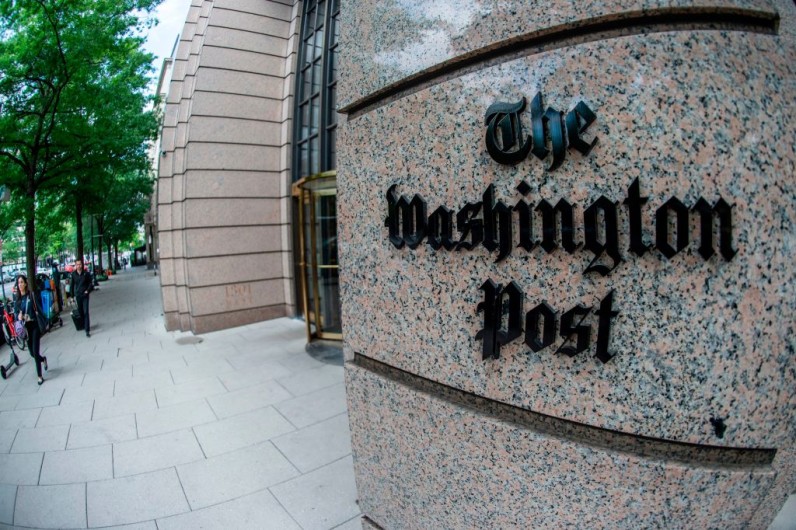
The Washington Post recently decided to reject a $115,000 advertisement from advocacy groups Common Cause and the Southern Poverty Law Center (SPLC) after initially approving it.
The ad, which was meant to appear on the front and back pages of the newspaper, called for the removal of Elon Musk from his role as head of the Department of Government Efficiency.
The ad depicted Musk's image superimposed over the White House with the question: "Who's running this country: Donald Trump or Elon Musk?" It further criticized Musk for "creating chaos and confusion" and stated that "the Constitution only allows for one president at a time."
Common Cause and the SPLC had signed a contract with The Washington Post and were preparing to submit payment when the ad was abruptly pulled.
According to CNN, a spokesperson for Common Cause explained that the groups were told by the newspaper that it could no longer run the ad but would allow the interior ad — a less prominent full-page version featuring a photo of Musk with the caption "no one elected Elon Musk to any office" — to be published instead.
Despite offering to modify the artwork, the advocacy groups were told that the ad would not be published. "When we asked questions, they said they couldn't tell us, but they didn't want to lose the whole commission," the spokesperson stated. "They were wanting to run the interior ad."
#WaPo pulls plug on $115K full-page ad slamming #Musk's alleged influence over Trump!
— Facts Prime (@factsprime35) February 17, 2025
The ad, set for Tuesday's edition, urged readers to push Senators to call for Musk's dismissal. #US pic.twitter.com/nTwoTovaPW
Read more: The Washington Post's New Editor Withdraws From the Role Due to Controversial CEO Scandal
Washington Post Rejects Anti-Musk Ad, Sparking Debate Over Press Freedom
This decision has sparked strong reactions, particularly from Common Cause President Virginia Kase Solomón, who expressed concerns about The Washington Post's independence under Jeff Bezos' ownership.
She pointed out that the paper, known for its investigative journalism, may have been influenced by corporate pressures. "It seems to have forgotten that democracy also dies when a free press operates from a place of fear or compliance," Solomón told CNN.
The advocacy groups were planning to distribute the full-page wrap ad to subscribers in key locations like the White House, Congress, and the Pentagon.
The ad's call to action was aimed at getting lawmakers to address what they see as Musk's unchecked power and influence over government policy.
At the time of publication, a petition urging action against Musk had gathered over 95,000 signatures.
Despite the ad's rejection, the groups remained firm in their criticism of Musk's role, which they feel undermines government accountability.
This comes at a time when President Trump has directed Musk's team to make significant cuts in federal staffing, a move that has been widely debated.
Musk, in response to the ad's rejection, called the SPLC a "scam" and criticized the organization on social media, Independent said.
The Washington Post declined to comment on its decision, referring instead to its advertising policy, which reserves the right to reject or modify ads as it sees fit.
This decision adds to growing concerns about corporate influence over the media, especially when large figures like Musk are involved.







Join the Conversation